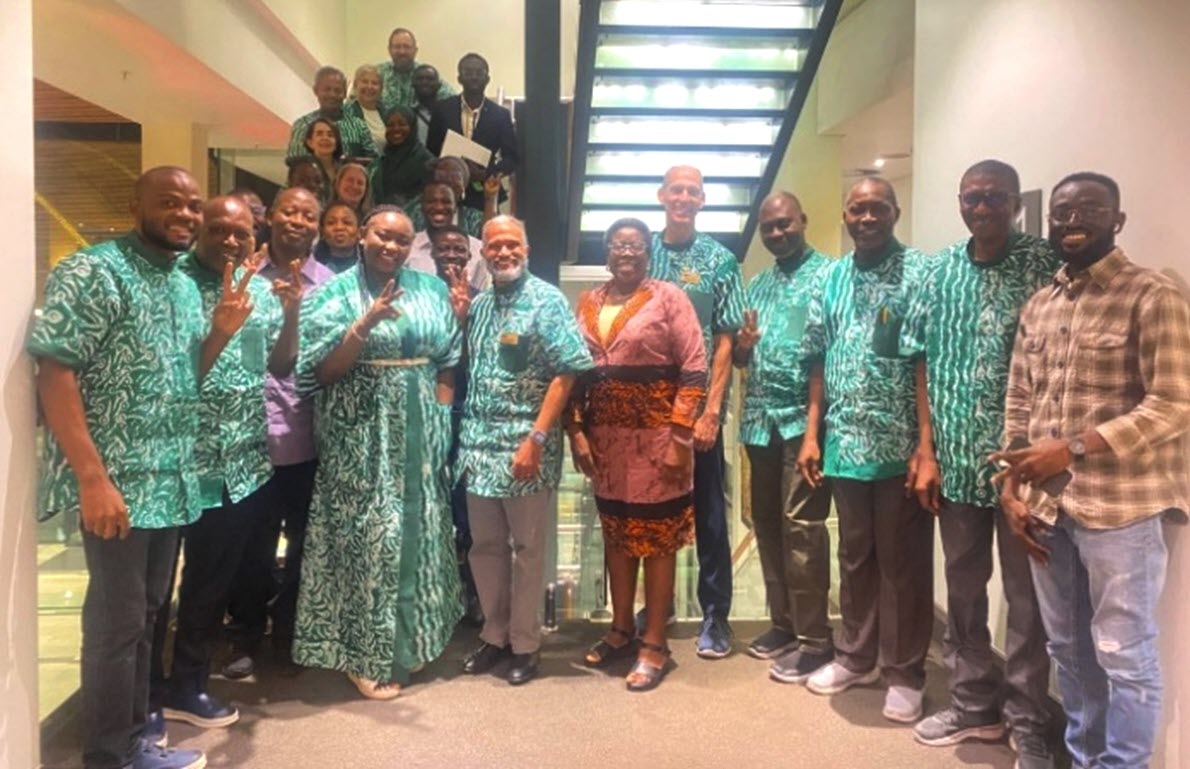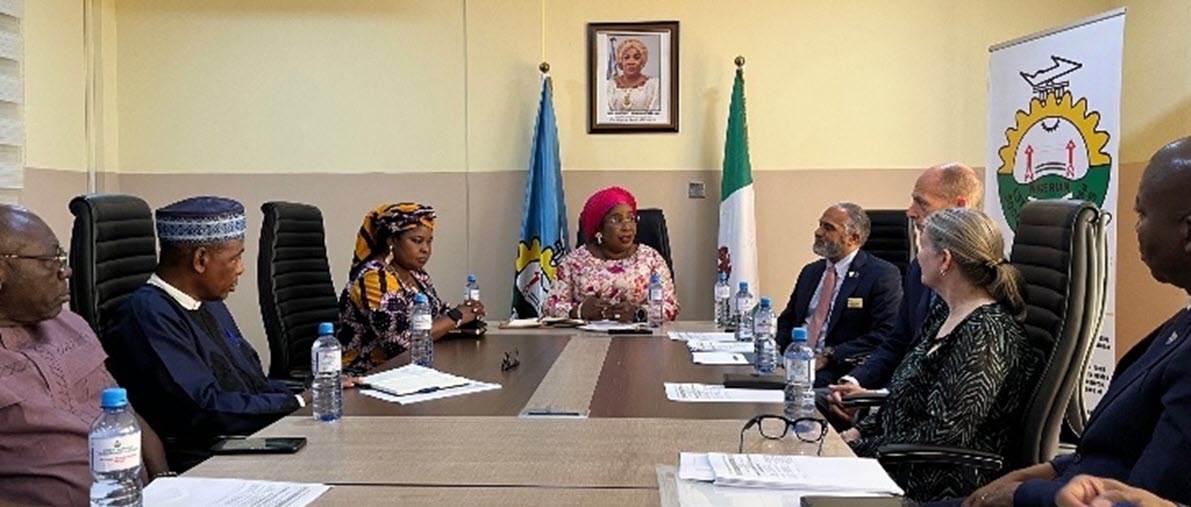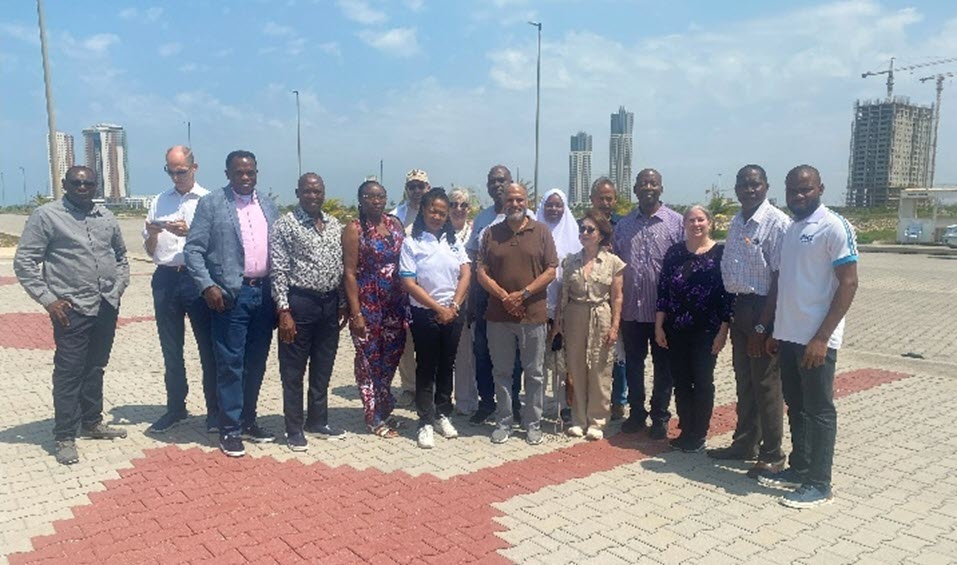
Nigeria is growing in stature – literally. It’s Africa’s largest country by population, with more than 230 million people, and the sixth largest worldwide. Interest in ASCE, its technical standards, and emphasis on infrastructure resilience and sustainability has also been growing among the civil engineering community there.
What’s more, the next director of ASCE Region 10 is Nigerian, Emmanuel Adeyemo, elected by a majority of international members in the latest election, as well as is Rasheed Hassan, appointed to a new three-year term as a Region 10 governor.
Nurturing the Society’s expanding standing in Nigeria made it a natural destination for this year’s ASCE presidential trip, held annually to reinforce and expand the regard in which ASCE is held globally.
Adeyemo will be sworn in at the annual membership meeting this October in Seattle, in conjunction with the ASCE 2025 Convention. In the meantime, he, Hassan, section president Austin Odibi, and their spouses served as gracious hosts to their country for 2025 President Feniosky Peña-Mora, accompanied by Executive Director Tom Smith.

First touching down in Lagos, Africa’s largest city, Peña-Mora and team were greeted by Nigerian Section leaders. They then flew on to the centrally located nation’s capital, Abuja, for a day of meetings with Abuja Branch and Kaduna Branch officers and members, and with other civil engineering leaders, discussing common concerns and the potential for mutual support.
The gathering at Nigerian Society of Engineers headquarters also included delegations from the Nigerian Institution of Civil Engineers, reinforcing ASCE’s agreement of cooperation with the sister society, and with the Association of Professional Women Engineers of Nigeria, a division of NSE.

Back in Lagos, Peña-Mora and Smith rejoined Nigeria Section members and discussed ASCE’s latest initiatives, then were taken on a tour of a massive land reclamation project heralded as a combination port expansion, new commercial-residential district, and buffer for the city against potential climate change-driven erosion and sea level rise.
Known as Eko Atlantic City, but officially referred to as Nigeria International Commerce City, the 4-square-mile reclamation project was completed in 2013, and development remains ongoing. When complete, the public-private partnership anticipates about 300,000 residents and will serve as the home of a new U.S. consulate.
To coincide with Peña-Mora’s itinerary, the Nigeria Section’s 2025 Global Sustainable Infrastructure Conference convened, focusing on integrated approaches to sustainable infrastructure planning and delivery. In his opening remarks, Peña-Mora reinforced how sustainability, resilience, and cost-effectiveness are not competing priorities, but interdependent goals, and expressed how impressed he was by the example Nigeria is setting for the world.
“The work being done here in Nigeria is not just impressive; it’s essential to our shared future. You are showing how infrastructure can be climate-smart, circular, and community-driven,” Peña-Mora said. The event attracted national media coverage, including in Nigeria’s largest newspaper.
Peña-Mora also spoke to the Region 10 Board of Governors, which held its annual in-person meeting in conjunction with the trip.
“The trip was a resounding success, fulfilling ASCE’s mission by building international bridges, connections, and relationships, while advancing civil engineering education, training, and innovation,” Smith said in a postscript message of thanks to all who participated.



